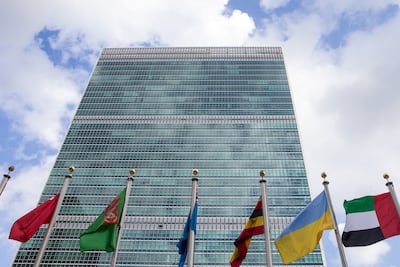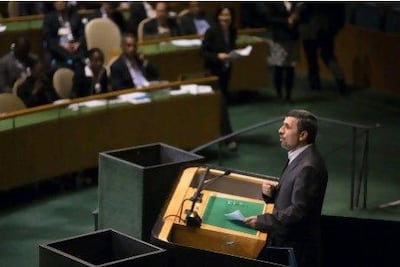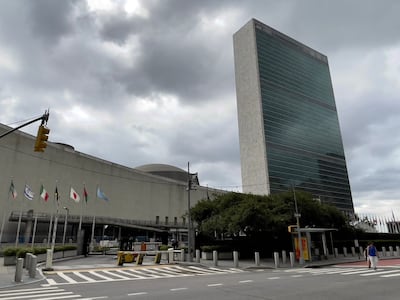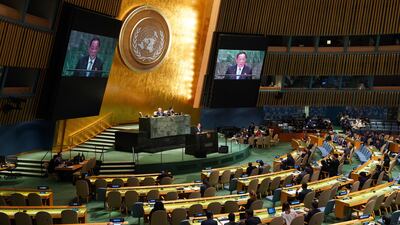Follow for live UN General Assembly coverage
The UN General Assembly will begin its 76th session on Tuesday as the coronavirus pandemic continues to sweep the globe.
Every year, diplomats and world leaders converge on New York City, home to the UN's headquarters, to discuss the yearly agenda and work towards solutions to global problems.
Last year, the UN's halls were oddly silent, with most world leaders avoiding travel owing to the pandemic. And with the US continuing to enforce travel bans on several countries, it seemed that this year, the event would be largely online.
At least 83 world leaders, however, have said they will attend the event in person this year, The New York Times reported.
But what is the UN General Assembly and why is it so important?
What is the UNGA?
The United Nations General Assembly (UNGA) is one of the six main organs of the UN. It is the only part of the organisation in which each of the 193 member countries is represented and is allowed to vote.
It is the main deliberative, policymaking and representative organ of the UN. The assembly meets every year in September and remains in session until at least the end of the year after all issues on the agenda have been addressed.

What does the General Assembly do?
The General Assembly has a number of different duties, including appointing the secretary general (on the recommendation of the 15-member Security Council), electing the non-permanent members of the Security Council and other UN bodies, and approving the UN budget.
The UN Charter defines the duties of the assembly as discussing, debating and making recommendations on subjects related to international peace and security.
Member states begin formulating the agenda for the assembly up to seven months before the assembly. The list of topics is slowly whittled down, leading to a final vote to officially set the agenda the assembly will discuss.

The General Assembly is a space where members can present problems and work together to fix them, drafting resolutions calling for specific actions, which are then voted on by the larger body.
Notable moments from past assemblies
Speech by Iran's Mahmoud Ahmadinejad: In 2011, Iranian president Mahmoud Ahmadinejad spoke before the UN General Assembly. Unlike most addresses by world leaders, which tend to be in favour of world peace and unity, Mr Ahmadinejad's speech was full of fiery invective. He lambasted the US, Israel and the UN itself, calling it unfit to lead world affairs. Several delegations walked out in response to his speech.

Mandate for Israel and Palestine: General Assembly Resolution 181 called for the partition of British-ruled Palestine into an Arab and a Jewish state in 1947. The resolution was passed, with 33 states voting in approval. Following the passing of the resolution, several Arab delegations walked out of the assembly, saying they were not bound by the decision.
Nikita Khrushchev shoe-banging incident: In 1960, Lorenzo Sumulong of the Philippines addressed the General Assembly and spoke about how free speech was being curtailed in communist Eastern Europe. Nikita Khrushchev, the leader of the Soviet Union at that time, approached the podium, brushed Sumulong aside and launched a vitriolic tirade against him and the US. Some reports of the incident say that during his speech, Khrushchev removed his shoe and banged it several times on the podium for emphasis.
What will happen this year?
The latest rules state that world leaders can deliver speeches in the General Assembly Hall flanked by up to three delegates during the high-level part of the summit.

Event organisers have asked that all those attending be fully vaccinated, though proof of vaccination is not required.
The US has placed a travel ban on a number of countries, including China, Iran, the UK and most of Europe, to help stop the spread of Covid-19.
Many world leaders previously said that they would avoid the risk of travel and send pre-recorded messages to the assembly, as happened last year. Many of the side meetings that take place during the event will be held either online or off-site.


